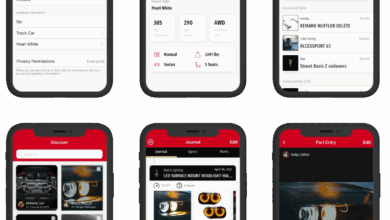How To Get A Car Appraised In Georgia

Finding Independent Appraisers
In Georgia if you need an appraisal, the best way to find a certified appraisers or adjuster is through one of the handful of industry organizations for appraisers. Each of these organization offer a directory of appraisers who are in Georgia and certified.
If you find yourself needing an appraiser because of a dispute with your or another insurance company, it may be helpful to learn a little more about how insurance companies determine the value of a vehicle. If the difference between what they are offering and your expectations are a few thousand dollars, there may be other avenues to resolve the difference by speaking the insurance companies language.
However, when that isn’t sufficient, or if you have another reason for needing an appraisal, the information below will help you locate an appraiser to meet your needs. We highly recommend ensuring your comfortable with your appraiser and they are familiar with your specific situation.
Finding An Car Appraiser In Georgia
In most cases youâll need a certified appraiser. Here are a few organizations to help you find appraisers if you ever need one. They generally require all of their appraisers to be certified. We would not recommend using an uncertified appraiser.
The American Society of Certified Auto Appraisers – Georgia
ASCAA is an organization dedicated solely to the Auto Appraising Industry. Their approach is to make sure all auto appraisals in America adhere to the Society’s Standards, Ethics, Quality and Methodology.
ASCAA certified appraisers are experts. They are required to go through their meticulous ASCAA certification process ensures that ASCAA-certified appraisers are accurate, impartial, and credible. They deliver independent valuations that assure automobiles are appraised at its fair market value.
Click To See Their Director Of Appraisers In Georgia
International Automotive Appraisers Association – Georgia
The IAAA has a strict Code of Ethics and the Uniform Standards for Automotive Appraisal Procedure (USAAP). They are a first in the automotive appraisal industry, in that they are specific & unique to the community that IAAA automotive appraisers serve.
The Association members are represented and identified on the advisory board of the J.D. Power N.A.D.A. Classic, Collectible and Special Interest Car Appraisal Guide. IAAA appraisals have specifically been used as a determining factor by Judge’s in cases. While there is no guarantee that will happen in every circumstance, it says a lot about the quality of methodology.
Click To See Their Director Of Appraisers In Georgia
Bureau of Certified Auto Appraisers/IACP Certified in Georgia
Our Certified Auto Appraisers have experience appraising fine automobiles as featured in Hemmings Motor News, Barret-Jackson Auction Company, Mecum Auction Company, RM Auctions, Russo and Steele, & Worldwide Auctioneers. BCAA/IACP appraisers work on antique, vintage, classic, and modern cars. They have been used for insurance, court ordered appraisals, loans and investments.
Click To See Their Director Of Appraisers In Georgia
Independent Auto Damage Appraisers Association
Click To See Their Director Of Appraisers
We should note that these organizations have their own methodology and certification process. The information below about each organization was furnished by the organization and shouldn’t be considered a review or endorsement.
Some Additional Valuation Tools And Databases
Hagerty Valuation
Hagerty is often considered the “book” on enthusiast and collector vehicle valuations. So much so that a number of insurance companies use Hagerty’s database to determine collector or specality vehicle values. You can use a VIN number to look up the value of any vehicle in their database.
However, even Hagertyâs tool is only effective with more popular enthusiast and collector cars, there are some known limitations. One area we’ve found you may still need an appraisal or additional sources are very specific submodel or rare cars where Hagerty does not have a catalog of information to work from.
Kelly Blue Book
Interesting enough the most famous valuation tool is likely Kelly Blue Book (KBB). While a number of years ago this was actually a blue book that car dealerships and insurance companies can use, most of this information is no online. While KBB is more popular in the dealership business, they are owned by Cox and license their data to a number of different companies.
NADA (National Automobile Dealers Association)
Another popular database of values is from NADA. NADA stands for the National Automobile Dealers Association. NADA has been cataloging used car values for decades. Their primary goal with their valuation is to provide information to dealers about the value of used cars â what they should expect to pay for trader ins and what they can hope to get at retail.
Avoid Valuation Issues To Begin With
While not every need for valuation is because of insurance, there is no question it’s the most common reason. However, the best way to avoid putting yourself in a situation where you need an appraiser is to eliminate or reduce the potential situations where you need them to begin with. Here are a few high level tips. You may even find in many cases if you are not actively in a valuation dispute, you may not need an appraisal at all.
Getting A Policy That Defines The Value Up Front – Agreed Value
Ask your insurance company to provide you a valuation report. You can also see if your company uses Hagertyâs database, and therefore you can look up the value yourself. You’ll want to be sure your specific policy uses this value and not assume. A number of insurance companies sell policies that may use different valuation tools.
The best way to account for valuation is with an agreed value policies. These policies allow you and the insurance company to determine a value up front. In most cases you don’t have to worry about valuation tools because you may be able to simply request an amount with documentation. Many don’t even require an appraisal, though for very high value policies they may.
We do recommend being careful when using âstatedâ policies. If the policy is branded a Stated (marketing term), be sure itâs still an Agreed Value policy. There are often differences between Stated and Agreed Value policies. Agreed Value policies differ because unless there is a reason to believe the information has changed or considered fraudulent, your insurance company will be obligated to use the value agreed to.
Coverage For Modification, Restorations, Swaps and Other Investments
A common reason for a valuation difference with insurance companies is the investment made into the vehicle like modifications, doing a restoration, or engine swap. Regular insurance policies do not cover these modifications, in fact in most cases they are outright excluded. While your insurance company may make minor accommodations, if you attempt to dispute the value of the vehicle based on these conditions, your insurance company may use their leverage to deny it. Even if the wreck isnât your fault, your insurance company likely may be limited in what they fight for on your behalf with the at fault company. In that situation you really need to specifically disclose and pay for coverage that includes these types of investments.





